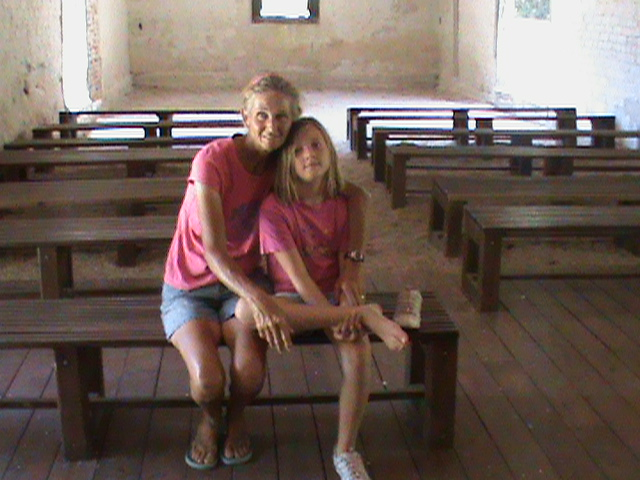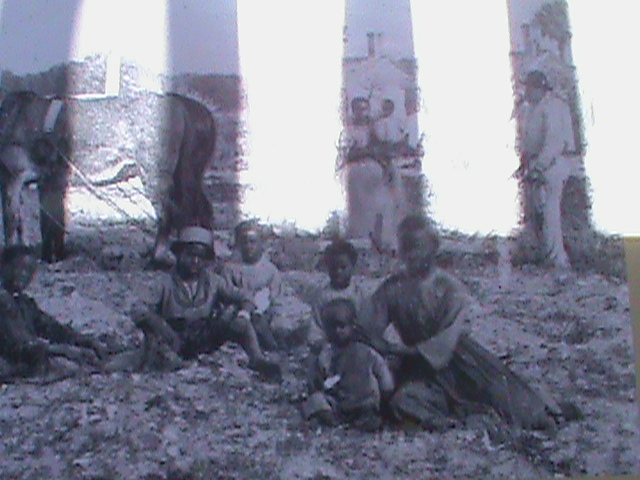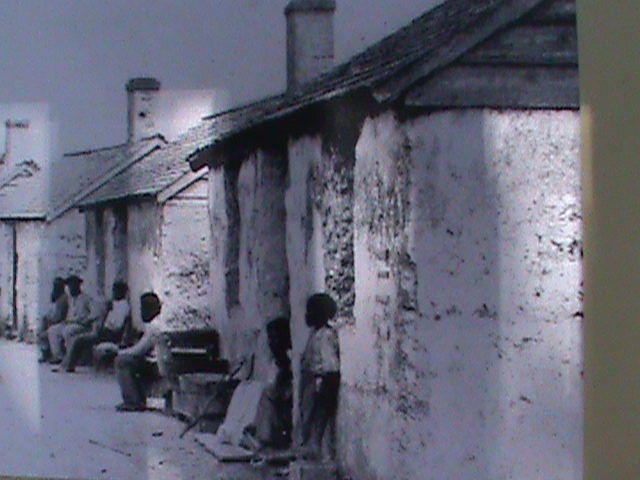
This is my post for #freewriters 2363 prompt rundown church hosted by @mariannewest
My granddaughter and I are sitting in a church on St Geoges Island in Florida, it is located on the Kinsley plantation, Zephaniah Kinsley was a slave owner who was not liked much by other slave owners, because he was not like them, even though he was a slave trader, he treated them with respect.

Kingsley stood alone among Southern statesmen in maintaining that Blacks were just as intelligent as whites.[6]: 52–53 He ridiculed racism,[15]: xi observing that "color ought not to be the base of degradation."[2]: 32 In Kingsley's opinion, "the colored race" was "superior to us, physically and morally. They are more healthy, have more graceful forms, softer skin, and sweeter voices. They are more docile and affectionate, more faithful in their attachments, and less prone to mischief, than the white race. If it were not so, they could not have been kept in slavery."
Kingsley had 3 black common-law wives and one that he married, Kingsley lavished all his children with affection, attention, and luxury. They were educated by the best European tutors he could find.[13]: 133 When he entertained visitors at his Fort George plantation, Anna sat "at the head of the table"; they were "surrounded by healthy and handsome children" in a parlor decorated with portraits of African women.
He eventually freed each of the slave women: they were named Flora Kingsley, Sarah Kingsley, who brought her son Micanopy; and Munsilna McGundo, who brought her daughter Fatima. In his will, the only woman Kingsley named as his wife was Anna. Primary documentation by Kingsley is scarce, but historians consider Flora, Sarah, and Munsila as "lesser wives",[4] or "co-wives" with Anna.[2]: 56 Stowell suggests "concubines" is perhaps a more accurate description of their status.
Even though the Church my granddaughter and I are sitting in looks like a rundown church I did not look at it as one. I would have no problem sitting through a service, just as it sits.

The slaves lived in houses made from tabby. Tabby is made of a mixture of oyster shells, lime (produced from the burning of oyster shells), sand, and water. Their homes were a quarter mile from the main house and they were allowed to padlock their homes and build porches on the back of their homes. Both of these were not allowed by other slave owners.
Kingsley wrote this about the people who lived in these cabins.
I never interfered with their connubial concerns, nor domestic affairs, but let them regulate these after their own manner. I taught them nothing but what was useful [religion was to Kingsley "not useful"] and what I thought would add to their physical and moral happiness. I encouraged as much as possible dancing, merriment and dress, for which Saturday afternoon and night, and Sunday morning were dedicated; and, after allowance, their time was usually employed in hoeing their corn, and getting a supply of fish for the week. ... They were perfectly honest and obedient, and appeared quite happy, having no fear but that of offending me; and I hardly had occasion to apply other correction then shaming them. If I exceeded this, the punishment was quite light, for they hardly ever failed in doing their work well.
Even though slavery was what they did back then and as bad as it was, it happened and is part of History. I remember in the 1960s when they were making Whites and Blacks go to the same schools, both races of parents were against it plus us kids. Also how the parents of both races would not let us play together, or listen to each other's music. This is also part of history and both worked out for the better. So maybe we do not understand why things happen, sit in the rundown church and believe they will get better.
Top photo is mine
all that is highlighted was copied from https://en.wikipedia.org/wiki/Zephaniah_Kingsley



